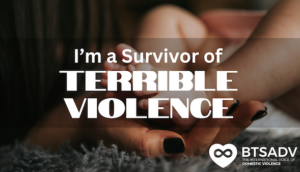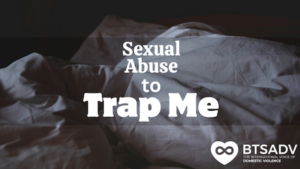Like domestic violence, teen dating violence is controlling behavior. According to DoSomething.org, violent behavior begins between 6th and 12th grade and 72% of young people are already dating by the time they are 13 to 14 years old. At this stage of life when youth are lacking significant experience in the dating world, it is not uncommon for peers to pressure eventual abusers into violent behavior.
Simultaneously, the teenage years stand out as a time where the views that young people have about love are highly romanticized. Young women often hold misguided beliefs that normalize abuse because “everyone is doing it.” A teenage girl may even misinterpret possessive and jealous behaviors or physical abuse as an expression of passion and romance. This isn’t helped by the cultural belief that leads young men to believe that being aggressive is masculine. Behaving otherwise will cause them to lose respect among their peers. Developing a safety plan with teens can help you keep them safe.
Fortunately, there are signs which indicate that a teenager is experiencing dating violence. They may become isolated and begin using alcohol and substances. You might notice visible physical injuries or clues of pregnancy. Personality changes and emotional outbursts are also common indicators to look for.
According to Break the Cycle, safety planning with a teen can help them identify their support systems, connect them to school and community resources, and empower them to take control of their lives back. Teenagers have the right to feel safe and be in relationships free of violence.
Creating a safety plan
The abuse is never the victim’s fault and making the decision to leave an abusive partner can be both difficult and dangerous for people of any age. The abuser may react violently when they realize that their control is falling apart. If you feel that your safety is at risk, developing a safety plan with your teens helps them to get the support they need safely exit the relationship. Here are some recommendations for teen safety planning:
• Talk to a family member, friend or teacher that you trust. Talk to someone trained at National Dating Abuse Hotline (866-331-9474) if you need a place to stay.
• Do not break up in person if you don’t feel safe. If you must, be sure to do so in a public place.
• Decide on a secret, safe location for someone to pick you up. Keep your tank full of gas if you own a vehicle. If using public transportation, learn the route to safety via bus or train.
• Trust your instincts and think for yourself. Avoid allowing anyone to talk you into doing what isn’t right for you.
• If you live with your partner, keep a bag of important items to take with you: cellphone and charger, license/ID, cash & ATM cards, any protective orders you may have, and a clean change of clothes.
• If you are leaving with children, be sure that they have a few essentials as well. Anything they may need should be prepared. Some examples are spare clothes, favorite toy or blankie, birth certificate, health records, diapers, formula and bottles.
You have control over how to prepare for this. Think about action steps to take that are specific to your circumstance and based on your own needs. No one deserves to be abused. This is not your fault.
An online safety planning tool is available at loveisrespect.org
If you or someone you know is in an abusive relationship, there is help. You can visit the Break the Silence website at www.breakthesilencedv.org or chat with one of our support line advocates at 855-287-1777.









